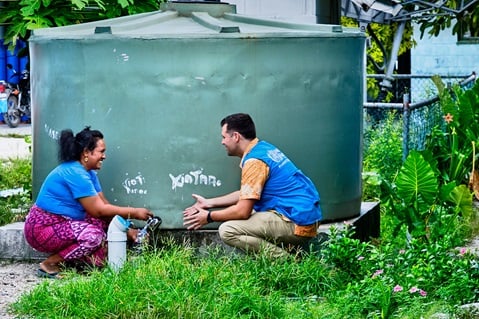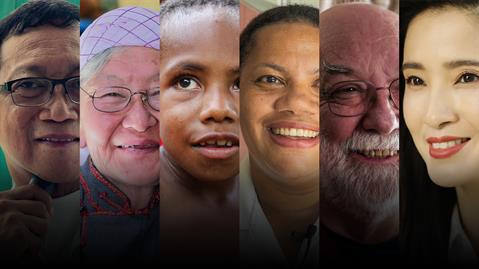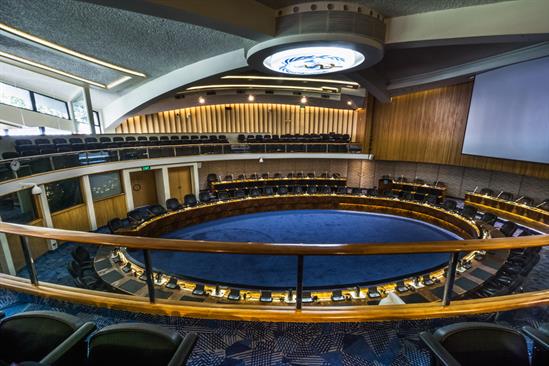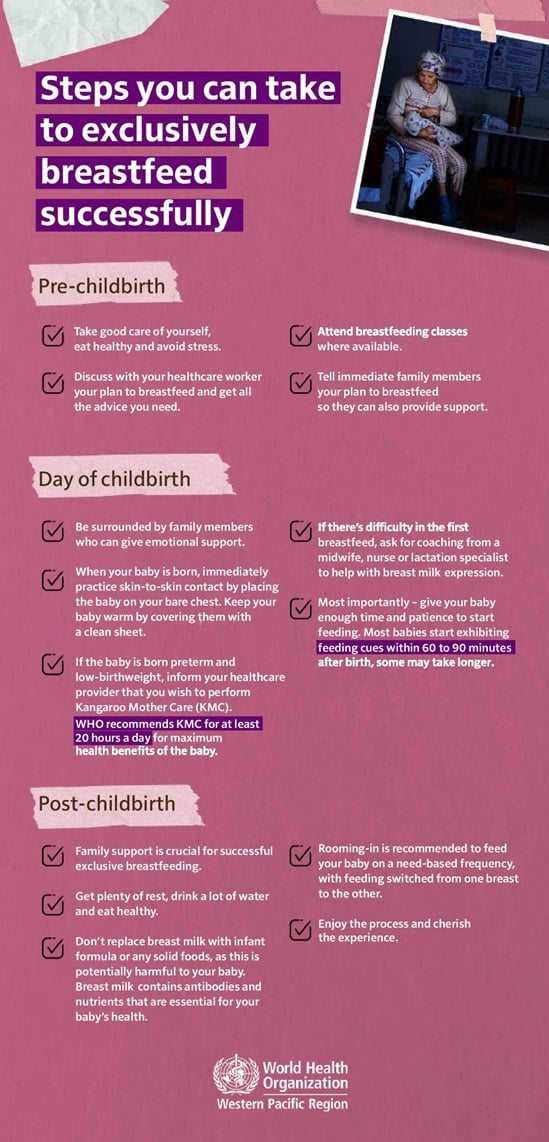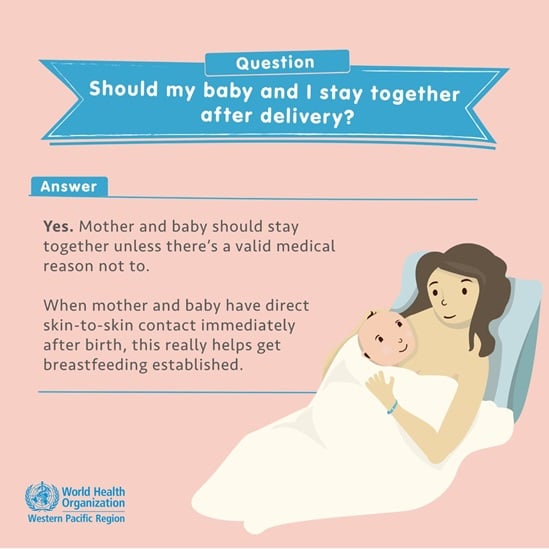A nurse is counselling mother on appropriate breastfeeding for newborns, at Health Clinic Precinct in Malaysia.
Newborn health
A newborn infant, or neonate, refers to a baby in the first 28 days of life, a period marked by the highest risk of morbidity and mortality. Enhancing neonatal survival and health and preventing avoidable deaths and stillbirths requires achieving high coverage of quality antenatal care, skilled birth attendance, and postnatal care for both mothers and newborns.
Neonatal deaths, which occur within the first 28 days of life, are often caused by conditions and diseases linked to poor quality care during pregnancy and childbirth and inadequate management immediately after birth and in the first week of life. The leading causes include preterm birth, birth asphyxia, infections, and congenital abnormalities.
To accelerate progress in neonatal survival and promote overall health and well-being, it is essential to strengthen quality of care and ensure the availability of quality health services for well, small and sick child.
Member States in the Western Pacific region have demonstrated a strong commitment to ending preventable neonatal deaths by introducing Early Essential Newborn Care – evidence-based, cost-effective and simple interventions proven to improve neonatal health outcomes.
Global Sustainable Development Goal (SDG) target 3.2 aims to end preventable deaths of newborns and children under 5 years of age, with all countries aiming to reduce neonatal mortality to at least as low as 12 per 1000 live births and under-5 mortality to at least as low as 25 per 1000 live births by 2030. In the Action Plan for Healthy Newborn Infants in the Western Pacific Region, the Region aimed to reduce neonatal mortality to 10 or fewer per 1000 live births, extending the target up to 2030.
Neonatal mortality in the Region has significantly dropped from 27.1 deaths per 1000 live births in 1990 to 5.7 deaths per 1000 live births in 2022. However, 100 585 newborns still died in 2022 equivalent to one death every five minutes. Newborn death accounts for 52% of deaths in under-five children.
Additionally, a stillbirth is defined as death of baby after 28 weeks of pregnancy, but before or during birth. In 2022, the stillbirth rate in the Region was 6 per 1000 births. Many of these stillbirths could be avoided through improved quality and respectful care during pregnancy and childbirth, including routine monitoring and timely referral to emergency care.
The regional vision is to ensure a healthy start for every newborn. To achieve this, the Action Plan for Healthy Newborn Infants in the Western Pacific Region was endorsed as a road map for driving changes.
Hence the Action Plan recommends evidence-based interventions that can be taken by governments and by development partners to improve neonatal survival and foster quality of newborn life. Nine priority countries, accounting for 95% of newborn deaths in the Region, have introduced and scaled up Early Essential Newborn Care (EENC) since 2013. This has led to significant improvements in practices including immediate and prolonged skin-to-skin contact, early and exclusive breastfeeding, delayed bathing, and Kangaroo Mother Care for preterm- and low-birthweight babies. In the past 10 years, EENC has been introduced in 6500 childbirth facilities, and more than 42 500 health-care providers have been coached. Five countries have successfully achieved the regional target of implementing EENC in 80% of childbirth facilities, while three more countries are on track. 93% of all term babies receive the first embrace immediately after birth.
The regional result-oriented and data-driven approaches are to enhance quality of newborn care through applying routine monitoring and undertaking continuous quality improvement measures. Ensuring that no baby is left behind and giving every newborn the best start of life are core principles that support the vision of the Western Pacific Region with healthy families, communities and societies.


